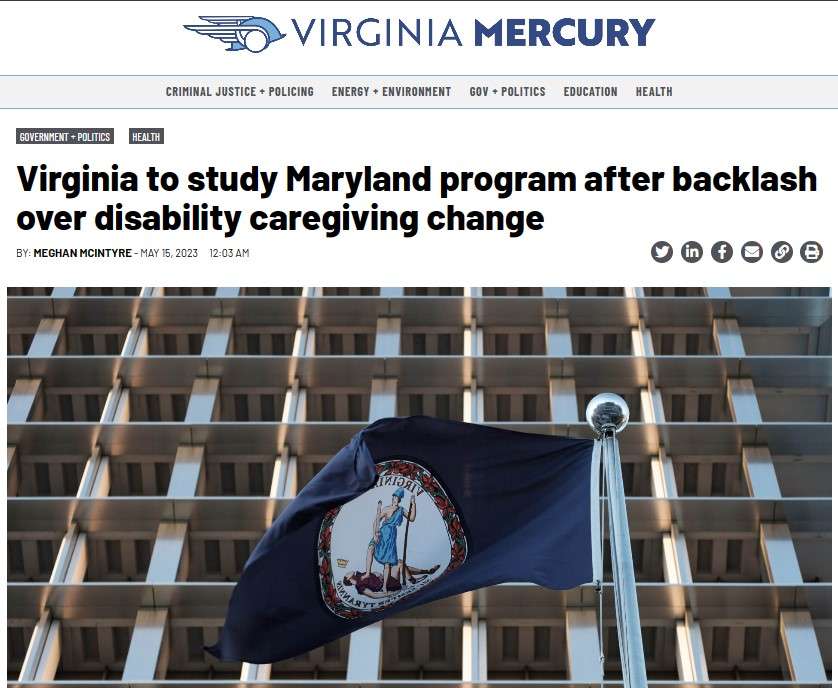Virginia Mercury published the following story on SEIU members and allies' work to protect the consumer-directed home care program for parents of children under 18 and spouses:
After outcry from hundreds of families and letters from state Democrats, Virginia plans to study whether a Maryland program allowing certain family members to be paid for caregiving services for people with disabilities can be adopted in the commonwealth.
Del. Mark Sickles, D-Arlington, a ranking member of the House Health, Welfare and Institutions Committee, said both Secretary of Health and Human Resources John Littel and Department of Medical Assistance Services Director for Complex Care Services Tammy Whitlock late last week told him DMAS intends to study a federally approved Maryland plan for the provision of care for people with disabilities under certain Medicaid waivers.
That plan allows the state to directly pay parents of minors with disabilities as well as spouses of people with disabilities to provide caregiving services to their family members.
A similar option has been available in Virginia since the start of the COVID-19 pandemic, but is set to end this fall because of DMAS concerns that it wouldn’t follow federal guidelines in a post-COVID world and fell short of oversight standards.
Youngkin spokesperson Macaulay Porter confirmed the study is happening.
“Every consumer-directed care program is a little different, but [Health and Human Resources] is always looking for best practices,” she wrote in an email.
A prior statement from Littel said the administration “remains strongly committed to consumer-directed care and especially to the provision of care by family members.”
However, he noted, “the federal government requires an extraordinary level of care for these individuals, so minimal training of parent caregivers and regular oversight by a nurse are appropriate ways to better serve these individuals. We will work with [the Centers for Medicare and Medicaid Services] to ensure that our processes are minimally intrusive to these caregivers and are reviewing employment and reimbursement policies of agencies that employ them.”
DMAS, which oversees the disability caregiving program, did not respond to multiple requests for comment.
Sickles said once DMAS understands the methodology behind how Maryland’s plan was approved, “the implication is they would reconsider what they’re doing now. That’s why they’re studying it because they do have a solution.”
Under DMAS’ current plan, spouses of people with disabilities and parents of minors with disabilities will have to be hired and trained by a home care agency starting Nov. 12 if they want to continue to be a paid caregiver for their family members.
The department has said the change is because agencies provide more oversight and require training to be a paid caregiver.
However, families and disability advocates said forcing people to go through an agency could result in financial stress because of low wages and create barriers in an already challenging situation.
In a letter to Littel signed by 37 Democratic members of the House, Minority Leader Don Scott, D-Portsmouth, wrote, “Forcing family members to become employed through an agency could create undue financial hardship among those who are seeking more autonomy, not more bureaucratic red tape.”
Sickles was not aware of a timeline for the study but noted that Virginia has six months after the end of the federal public health emergency to have changes to its disability waiver program approved. That would put the deadline at Nov. 11.
“Everyone wants these programs to work more simply and more understandably,” Sickles said. “Just as a general matter, trying to make things easier for the public is an overarching goal we should all have.”

